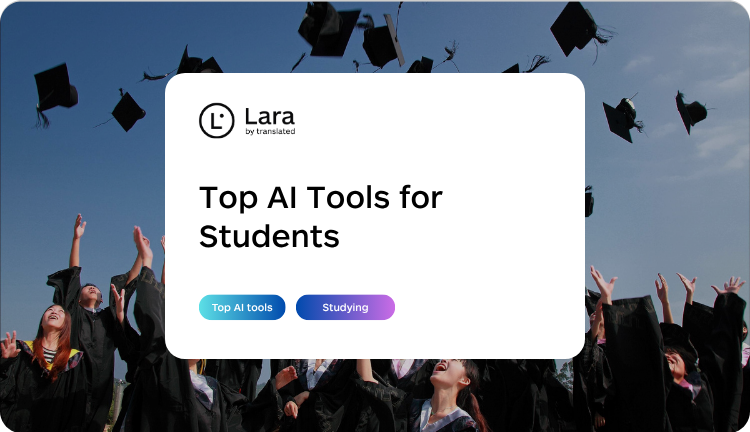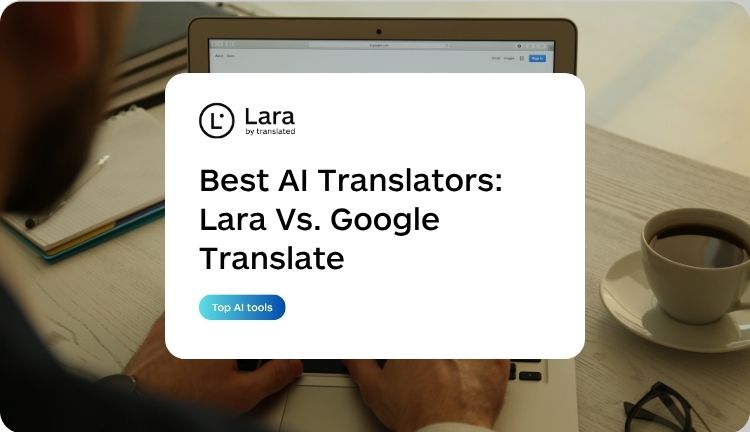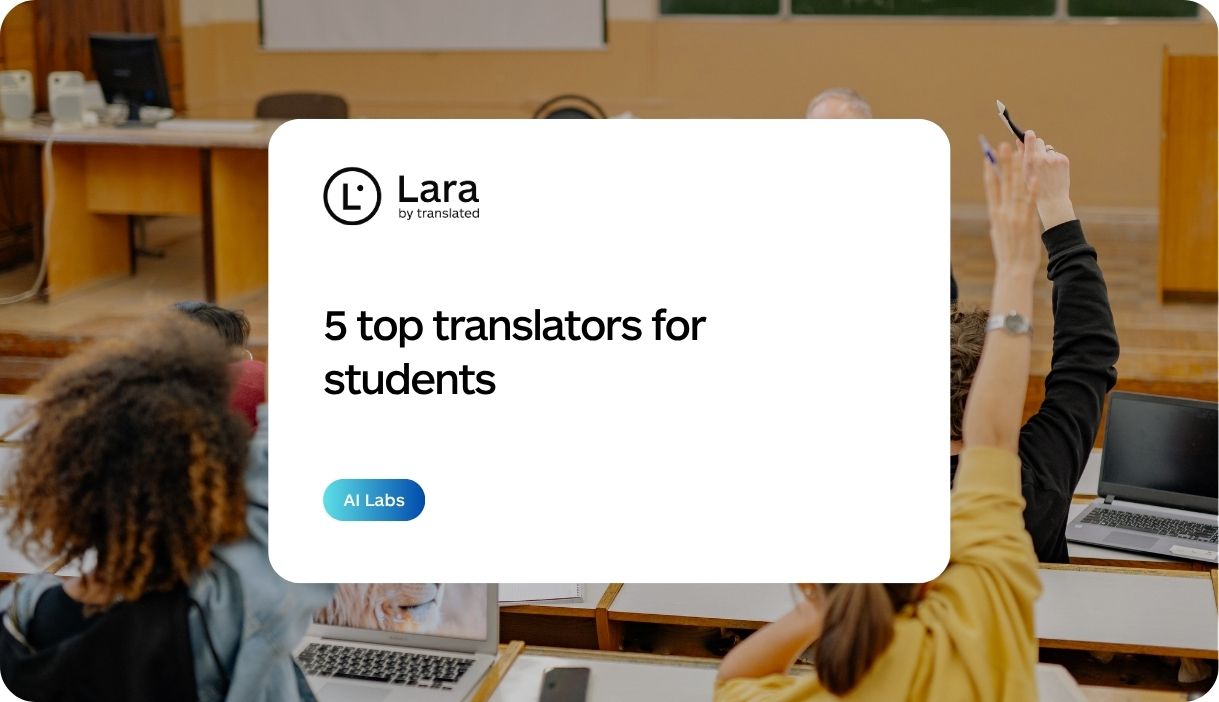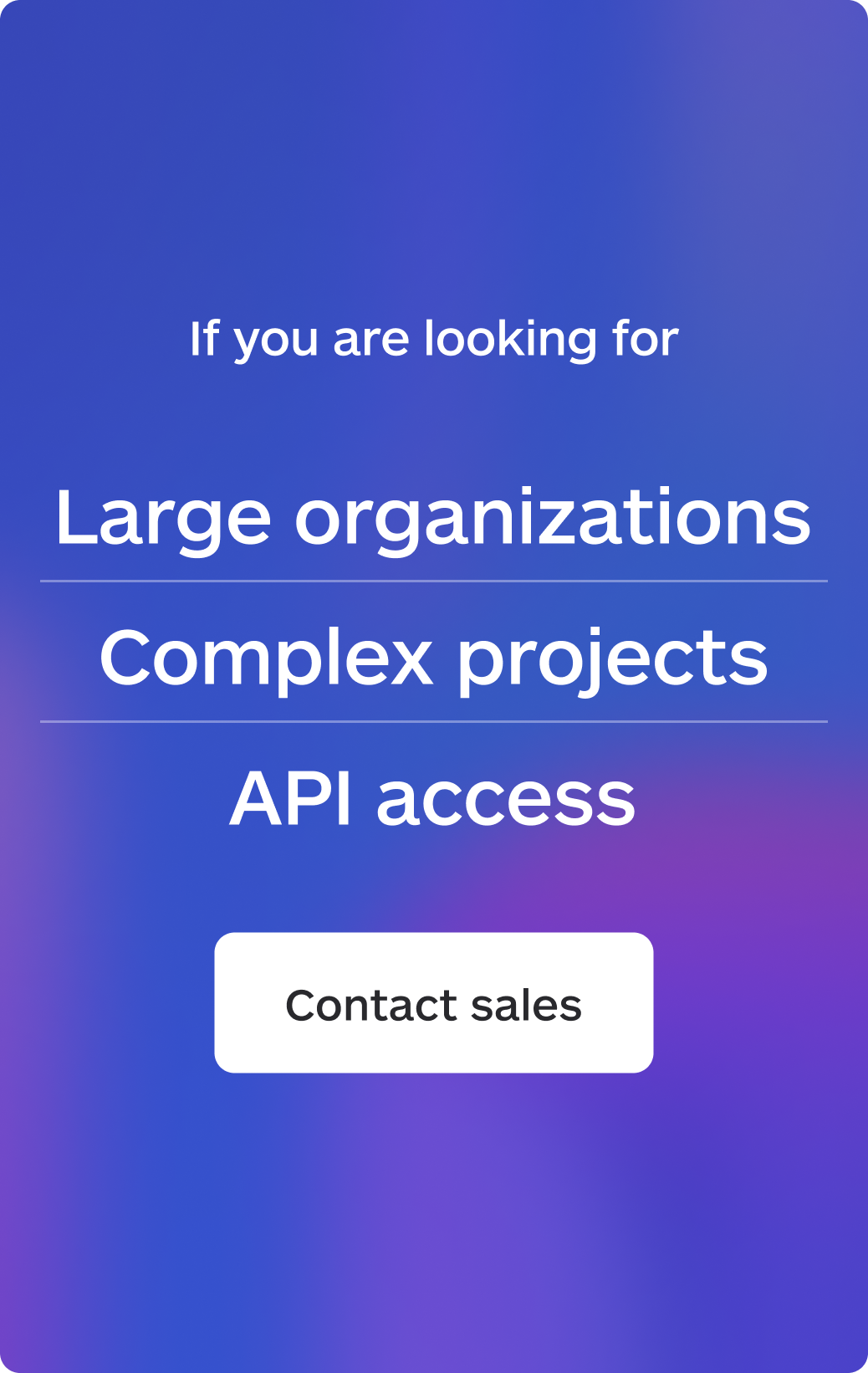Best AI for students: take notes, create automatic summaries, and organize your study smartly
Studying is not just about reading or taking notes, but also about knowing how to manage time and organize information effectively. Often, however, the enormous amount of material and the difficulty in synthesizing it slow down the learning process.
What are the top AI tools for students?
Artificial intelligence now offers concrete solutions to improve the way you study: from the automatic creation of summaries to the intelligent management of notes, to support in understanding complex concepts.
In this article, we explore the best AI tools designed for students, university students, and professionals in training. If you want to improve your study method and get results faster, you’re in the right place.
1. Consensus
Finds scientific research and simplifies its results
Consensus is a powerful AI-based scientific search engine designed to help students, academics, and researchers find reliable and verified answers quickly. By entering a question, the platform returns summaries of the conclusions of hundreds of peer-reviewed articles, facilitating the understanding of scientific data even for those without technical training. It is useful for writing theses, papers, and researching any academic topic. Unlike Google Scholar, the AI directly simplifies key concepts, saving valuable time in reading and analyzing papers.
- Cost: Freemium model – Pro from $11.99 per month
- Pros: AI-powered scientific search engine that simplifies the synthesis of hundreds of peer-reviewed articles; saves time; great for students and researchers.
- Cons: Advanced features are paid; may not cover all specialized topics.
2. SciSpace
Explains complex academic articles and helps with writing reviews
SciSpace is an innovative AI platform designed for students and researchers who need to understand complicated or technical scientific articles. By uploading a PDF, the AI highlights and explains difficult sentences, formulas, and graphs in simple language. It is ideal for delving into articles in biology, medicine, physics, or mathematics. In addition, SciSpace offers tools for writing reviews and academic articles, simplifying the methodological and bibliographic part. It can also be used to create exam questions or summary diagrams, speeding up learning.
- Cost: Freemium – Free access with limitations / Premium from $20 per month
- Pros: Explains sentences, formulas, and graphs of complex scientific articles in a simple way; tools for writing reviews and creating diagrams.
- Cons: Expensive premium version; limitations in the free version; mainly focused on technical scientific subjects.
3. Explainpaper
Analyzes technical papers and simplifies them with clear explanations
ExplainPaper is an AI specialized in the analysis and simplification of scientific articles, with a focus on technical or highly complex ones. Users can upload a paper and click on any sentence to receive a detailed explanation in natural language. Ideal for university students, doctoral students, and self-learners who tackle texts in academic English, without having to translate or search for every concept on Google. The interface is simple, fast, and free: a valuable tool for those studying or working in the academic world.
- Cost: Freemium; Pro from $12,99/month
- Pros: Detailed explanations for each sentence of technical papers; essential and fast interface; completely free.
- Cons: Basic functionality compared to more complete tools; only in English; not ideal for non-academic texts.
4. Mindgrasp AI
Summarizes any source: documents, web pages, or videos
Mindgrasp AI is designed for students and professionals who want to save time on reading and watching long videos. You can upload any type of content: PDFs, documents, YouTube videos, or web pages, and the AI will automatically generate a clear and concise summary. Useful for preparing exams, writing reports, or quickly reviewing complex materials. The interface is simple, the process is fast, and the results are accurate. Also ideal for those who have many sources to analyze in a short time.
- Cost: Pro Plan from $9.99 per month
- Pros: Summarizes any type of content (PDF, video, web pages) quickly and accurately; simple and intuitive interface.
- Cons: Pro Plan required for full use; may not capture all important details; not well known.
5. Grammarly
Improve the writing of reports, essays, and emails with advanced grammar correction
Grammarly is the number one AI tool for improving English writing, but it also works well with mixed texts. It corrects grammar, syntax, punctuation, style, and tone in real time, suggesting more fluid and professional alternatives. It’s perfect for writing academic essays, formal emails, reports, or presentations. With AI rewrite mode, you can also rewrite entire paragraphs in a more academic or persuasive tone. It supports Google Docs, Microsoft Word, browsers, and email clients.
- Cost: Freemium model – Free with basic features / Premium from €12 per month
- Pros: Advanced grammar and stylistic correction in real time; supports various formats; AI rewriting for more professional texts.
- Cons: Expensive premium features; some corrections are not always perfect for specialized contexts; limited to English.
6. ChatGPT
Explains concepts, helps with homework, creates quizzes, and answers questions with natural conversations
ChatGPT is an AI virtual assistant that can explain complex concepts, help with homework, solve exercises, and generate personalized quizzes. It is perfect for students of all ages, teachers, trainers, and self-learners. It works well with both scientific subjects (mathematics, physics, biology) and humanities (history, philosophy, literature), offering detailed answers, practical examples, and interactive support. It can also be used for brainstorming, planning, or training for oral or written tests.
- Cost: Freemium model – Free (GPT-3.5) / GPT-4 for $23 per month (ChatGPT Plus)
- Pros: Explains complex concepts; helps with homework; generates quizzes; natural conversations; supports many subjects and languages.
- Cons: Limited free version (GPT-3.5); GPT-4 for a fee; sometimes produces inaccurate or incomplete answers.
7. Quizgecko
Generates automatic quizzes from texts or slides in just a few clicks
Quizgecko is a perfect AI tool for students, teachers, and trainers: it allows you to create interactive quizzes in seconds from texts, PDFs, slides, or URLs. Simply paste the content and the artificial intelligence automatically generates multiple-choice, true/false, or open-ended questions, which can be customized in format and difficulty. Ideal for preparing tests, simulating oral exams, or creating custom exercises. It can also be used to gamify studying and review in a more engaging way.
- Cost: Free with limits; Pro from $14 per month
- Pros: Create automatic interactive quizzes from texts or slides; customizable; useful for students and teachers; quick and easy.
- Cons: Limits in the free version; some errors in the difficulty level; subscription for advanced features.
8. Paperpile
Organize bibliographic sources and automatically create citations for research and theses
Paperpile is an indispensable tool for those writing theses, papers or academic articles. It allows you to organize hundreds of bibliographic sources in an orderly manner, with automatic saving of metadata, PDFs and links. Integrated artificial intelligence simplifies the creation of citations according to APA, MLA, Chicago and other standards, directly in Google Docs or Word. Thanks to its cloud system and browser extension, you can save articles from the internet and access them anywhere. It is widely used in universities and by researchers at all levels.
- Cost: Free 30 days trial; Pro at $2.99 per month for students and $9.99 per month for professionals
- Pros: Organizes bibliographic sources and creates citations automatically; integration with Google Docs and Word; cloud system with access anywhere.
- Cons: Price for professionals is not low; interface can be complex for beginners; limited AI functions.
9. Scholarcy
Summarize academic papers and extract key insights instantly
Scholarcy is a powerful AI tool designed to quickly summarize academic papers, reports, and articles. It breaks down dense scientific texts into structured summaries, highlighting key points such as research questions, findings, and limitations. The platform can generate flashcards for revision and extract references, figures, and tables for easy access. Ideal for students, researchers, and academics, Scholarcy supports multiple file formats (PDF, Word, etc.) and integrates with tools like Zotero and EndNote. Its browser extension lets users summarize online articles directly.
- Cost: Freemium ; $8.99 per month
- Pros: Fast and accurate academic summaries; creates revision flashcards; highlights key parts of complex papers; browser extension for on-the-fly use.
- Cons: Best suited for STEM and research-heavy content; less effective on creative or narrative texts; limited customization of output summaries.
10. Genei
AI-powered research assistant for reading and summarizing documents
Genei is an AI tool tailored for academic research and productivity. It analyzes large volumes of text—articles, reports, and papers—by generating concise summaries and intelligent annotations. Users can highlight, comment, and organize content in research projects directly in the app. Its advanced search function scans across all uploaded documents to find specific topics or terms, making it a valuable companion during the research and writing process. Ideal for thesis writing, essay planning, or content review, Genei enhances focus and speeds up comprehension.
- Cost: £9.99/month for professionals and £4.99/month for students
- Pros: High-quality AI summaries; project and note organization features; helpful for managing large volumes of academic material.
- Cons: Interface can feel overwhelming at first; requires active internet connection; free version has limited capabilities.
Studying often means accessing material in foreign languages, which can be difficult without adequate support. Lara facilitates the translation and comprehension of complex texts, making studying more accessible and productive, even on international content.
Student life often means juggling assignments, group projects, and international sources. Language can quietly slow you down. Lara Translate helps students stay productive by instantly translating study materials, notes, emails, and group chats — all while preserving tone, meaning, and formatting. Whether you’re studying abroad or collaborating with classmates worldwide, Lara makes academic communication effortless, so you can focus on what matters: learning and succeeding.
This article is about:
-
Identifying top AI platforms that help students and teachers study more effectively—covering tools for research, writing, quizzes, summarization, organization, and translation.
-
Examining each tool’s features, pros/cons, pricing, and how they can boost academic productivity—from simplifying scientific papers to generating citations and creating quizzes.
-
Supporting multilingual and international study through integrated translation features, especially useful for non-native speakers.
FAQ
What types of tools are included?
The article lists ten AI tools, including scientific search engines (Consensus, SciSpace), paper explainers (Explainpaper), summarizers across different formats (Mindgrasp, Scholarcy, Genei), grammar and writing aids (Grammarly, ChatGPT), quiz creators (Quizgecko), and bibliography managers (Paperpile).
How can these tools improve academic work?
They help by simplifying difficult scientific content, auto-summarizing long documents or videos, correcting grammar and tone, generating quizzes for self-testing, and automating citation management—saving time and supporting better learning outcomes.
Are these tools free to use?
Most tools offer a freemium model: free basic access with limitations and paid plans for full features. Prices range from around €3/month (Paperpile student plan) to $20–$25/month for premium access to platforms like SciSpace or Explainpaper.
Which tools help non-native English speakers?
Several tools support language learners: Grammarly helps improve English writing; ChatGPT can explain in multiple languages; summary tools like Mindgrasp and Scholarcy make dense content more accessible; and translation support within Lara Translate (mentioned in the article) helps with foreign-language materials.
Other AI tool you might find useful:
- Top AI Tool for Remote Workers
- Top AI Tools for Content Creators
- Top AI Tools for Developers
- Top AI Tools for Creativity
- Top AI Tools for E-Commerce
- Top AI Tools for Better Writing
- Top AI Tools for Mind & Wellbeing
- Top AI Tools for Personal Finance
- Top AI Tools for Smart Traveling
Keep checking back as we update this list with more innovative AI tools!
Got a valuable resource to suggest? Submit it here and help us make our content even better!






